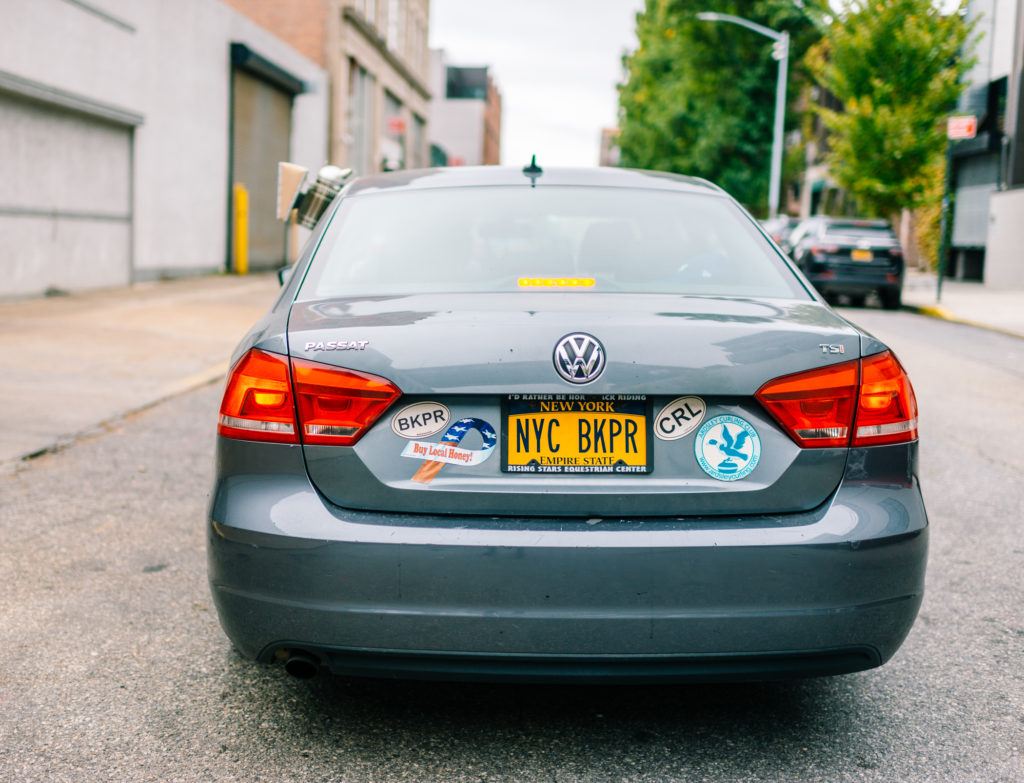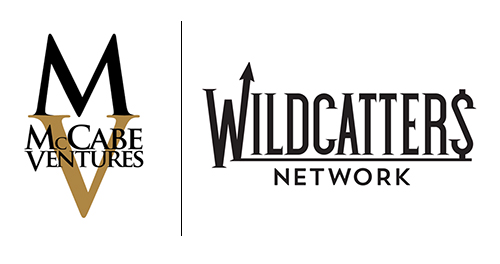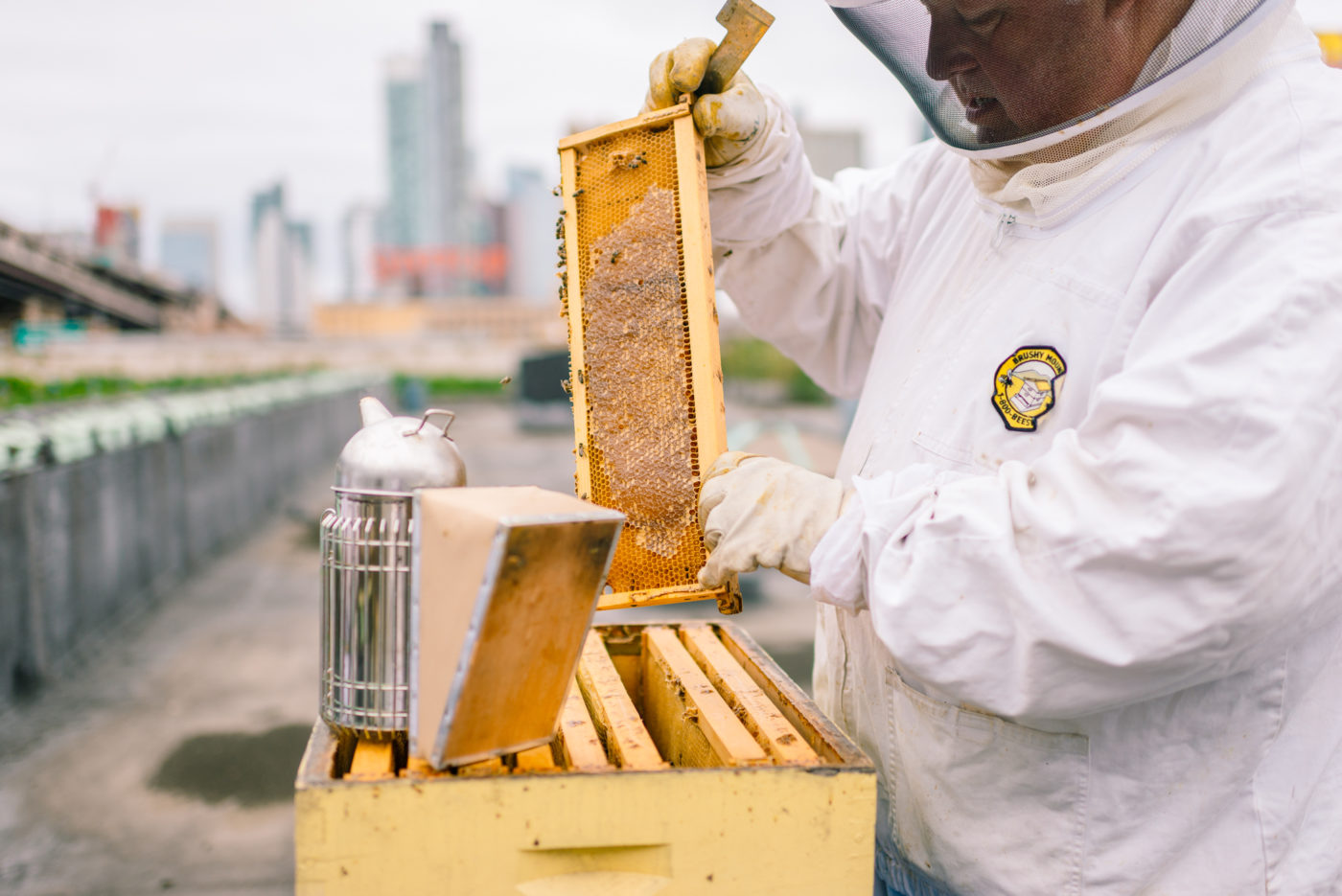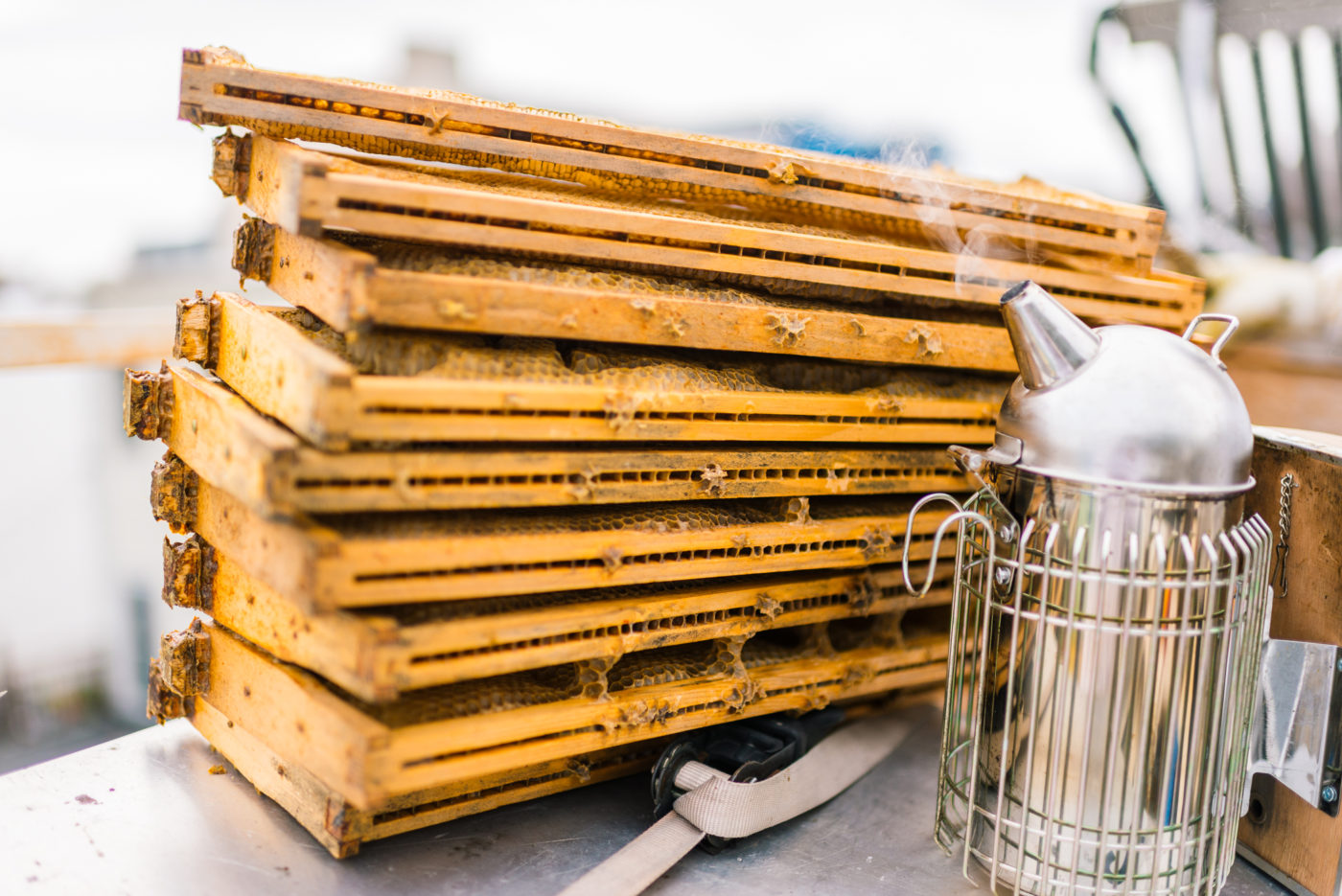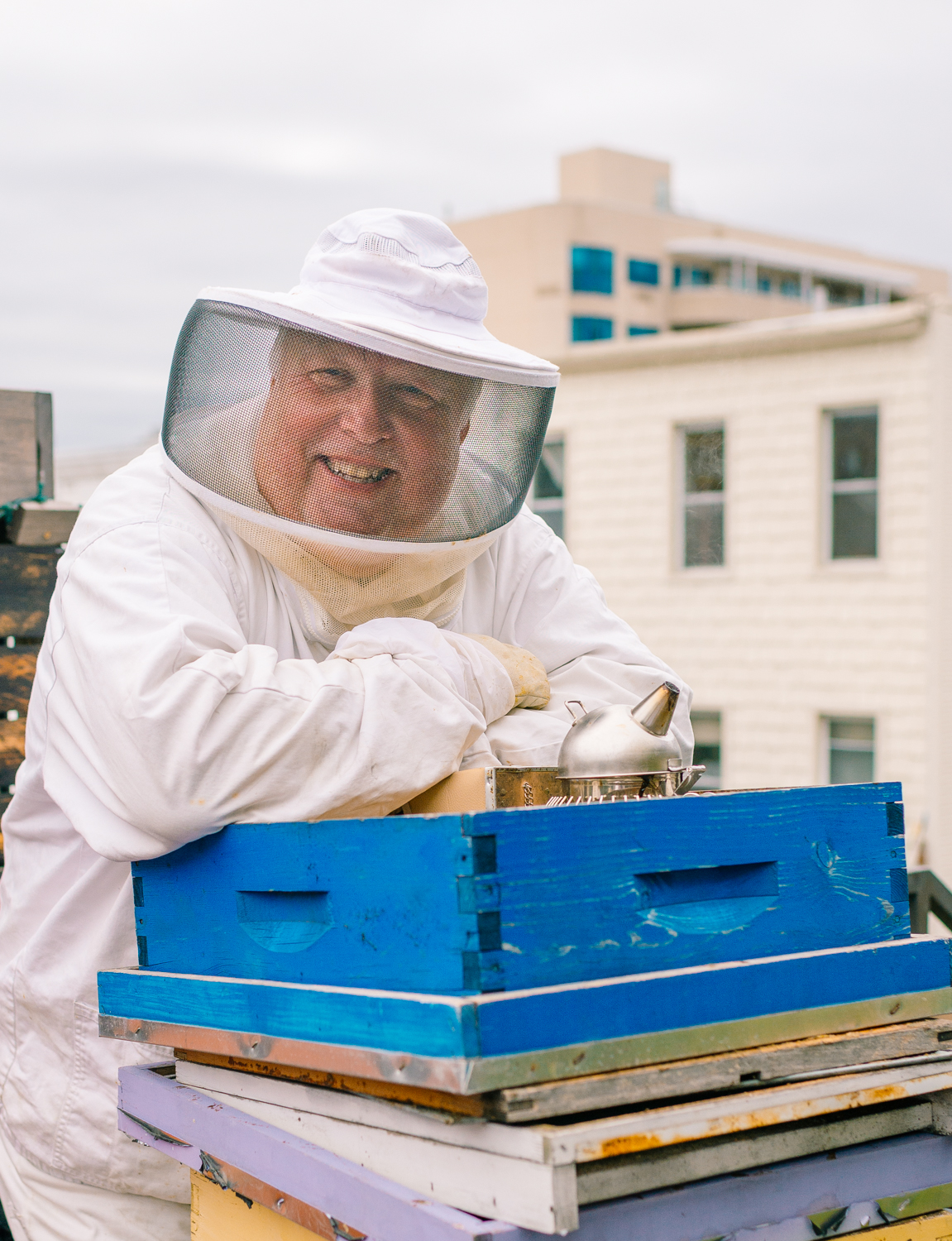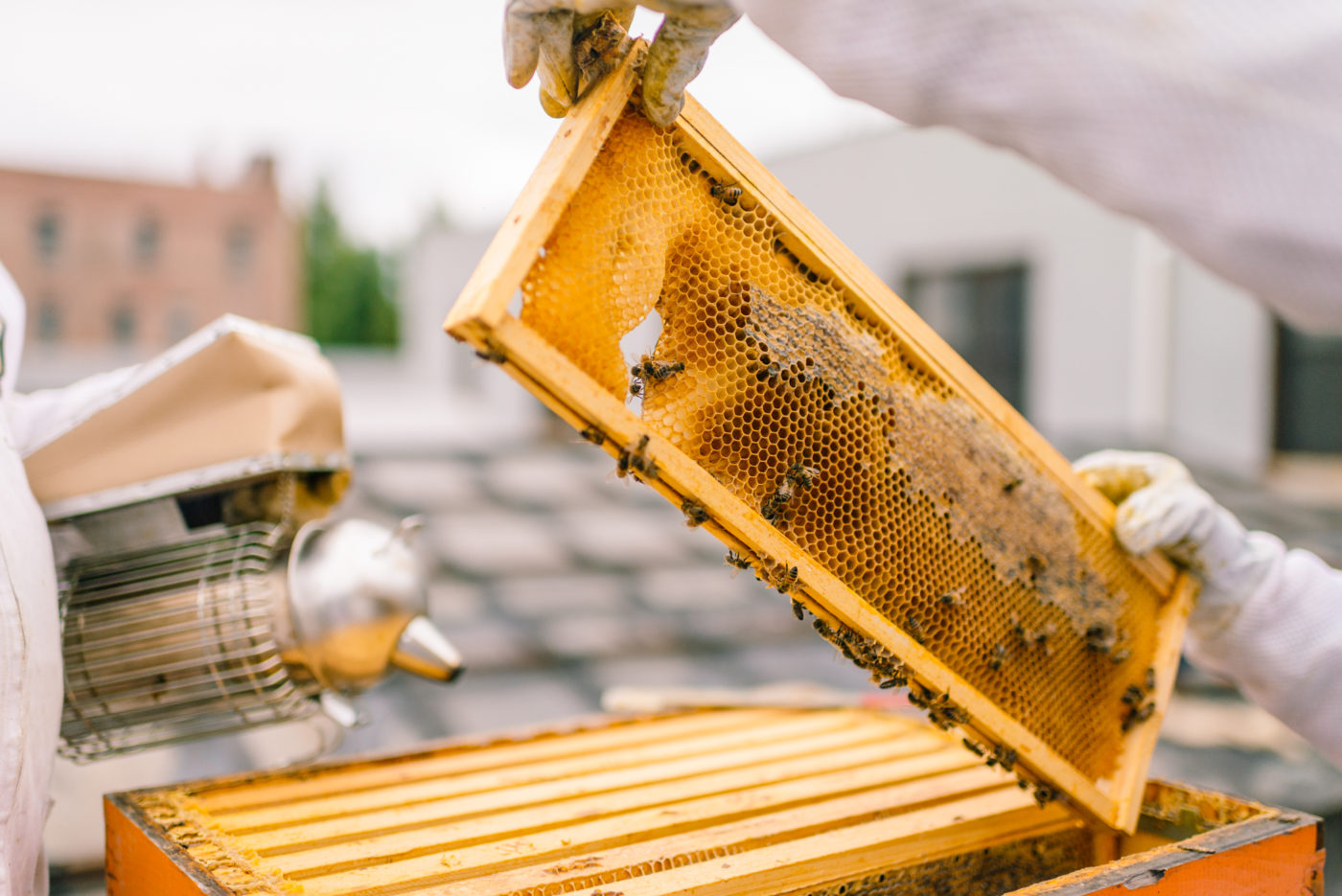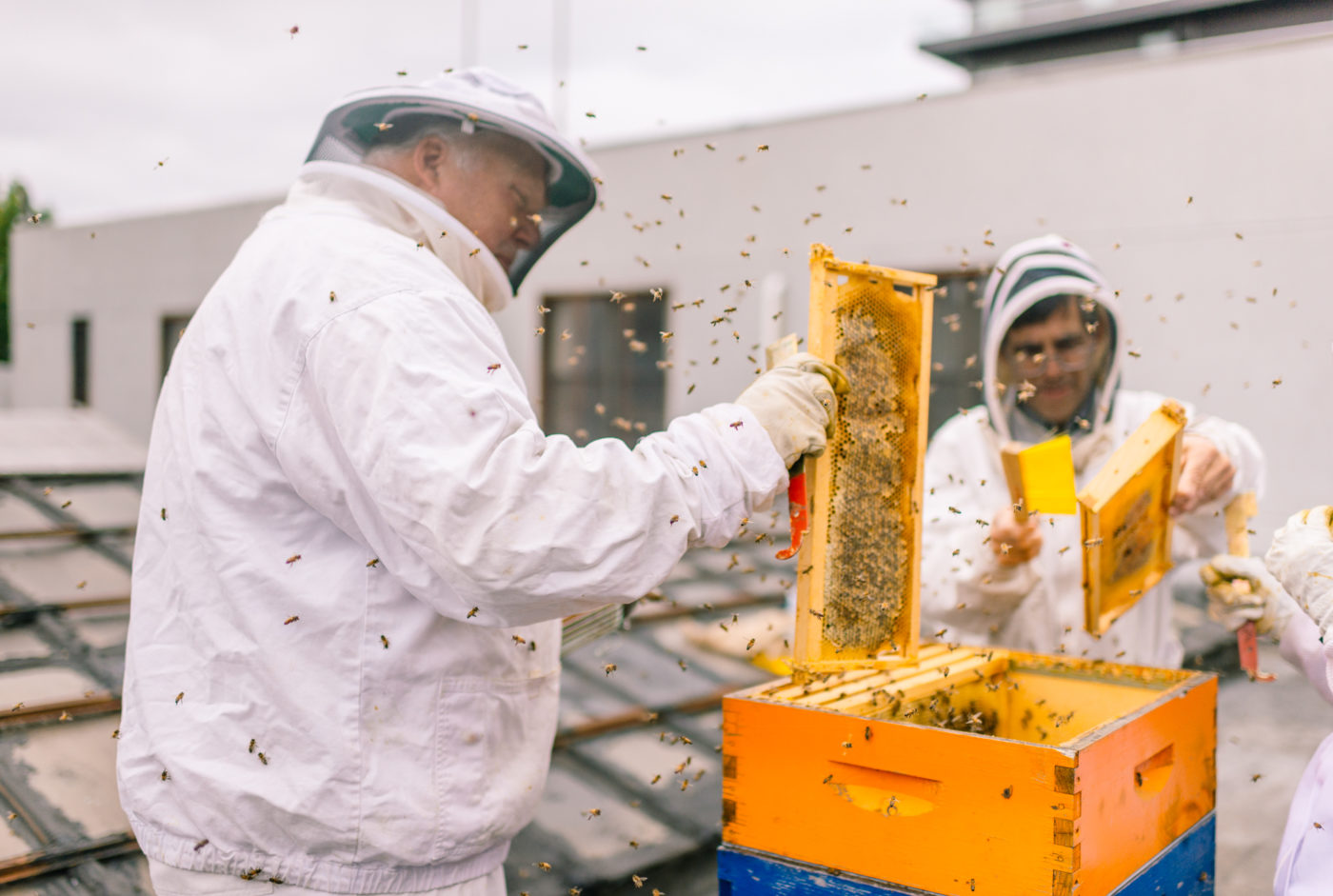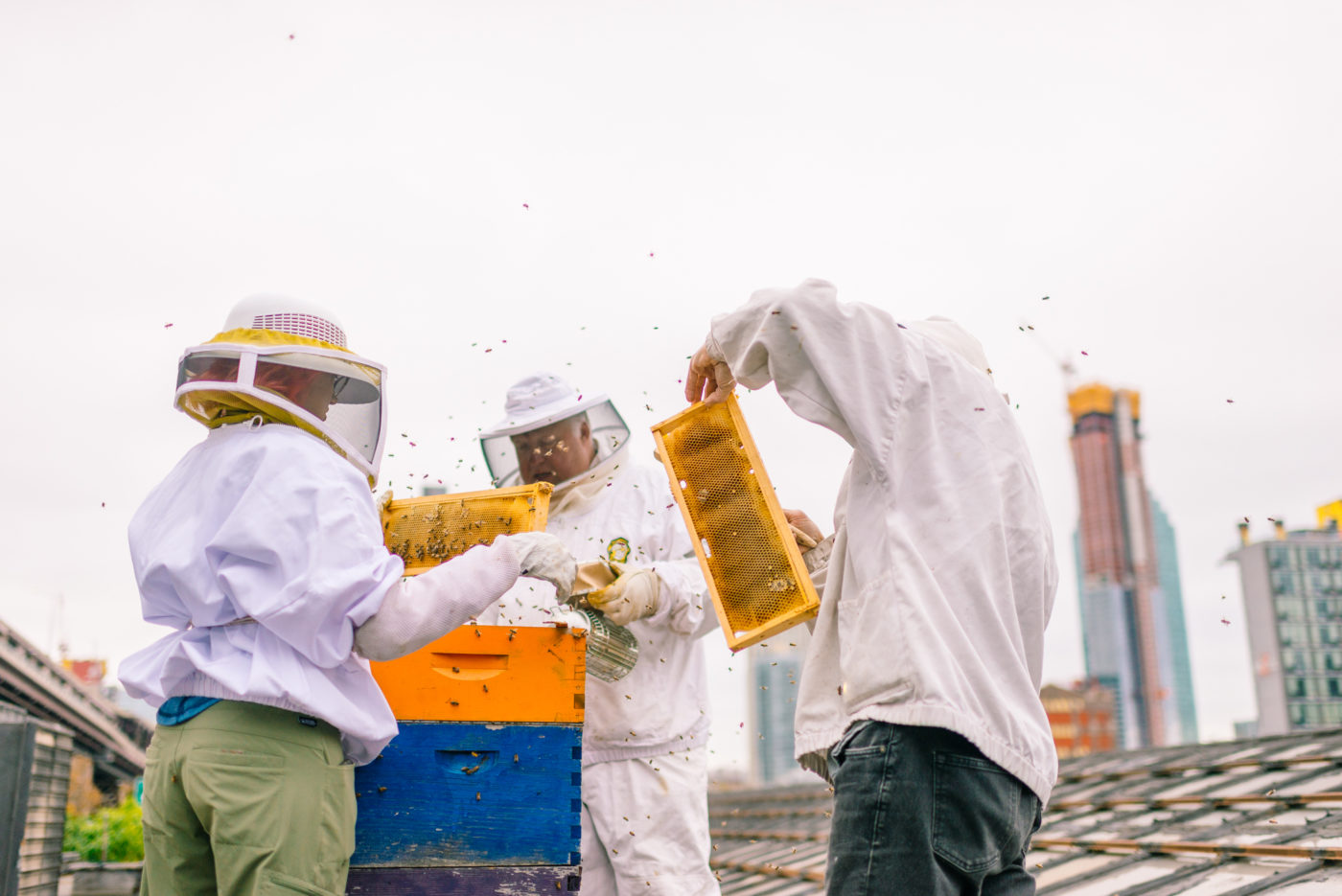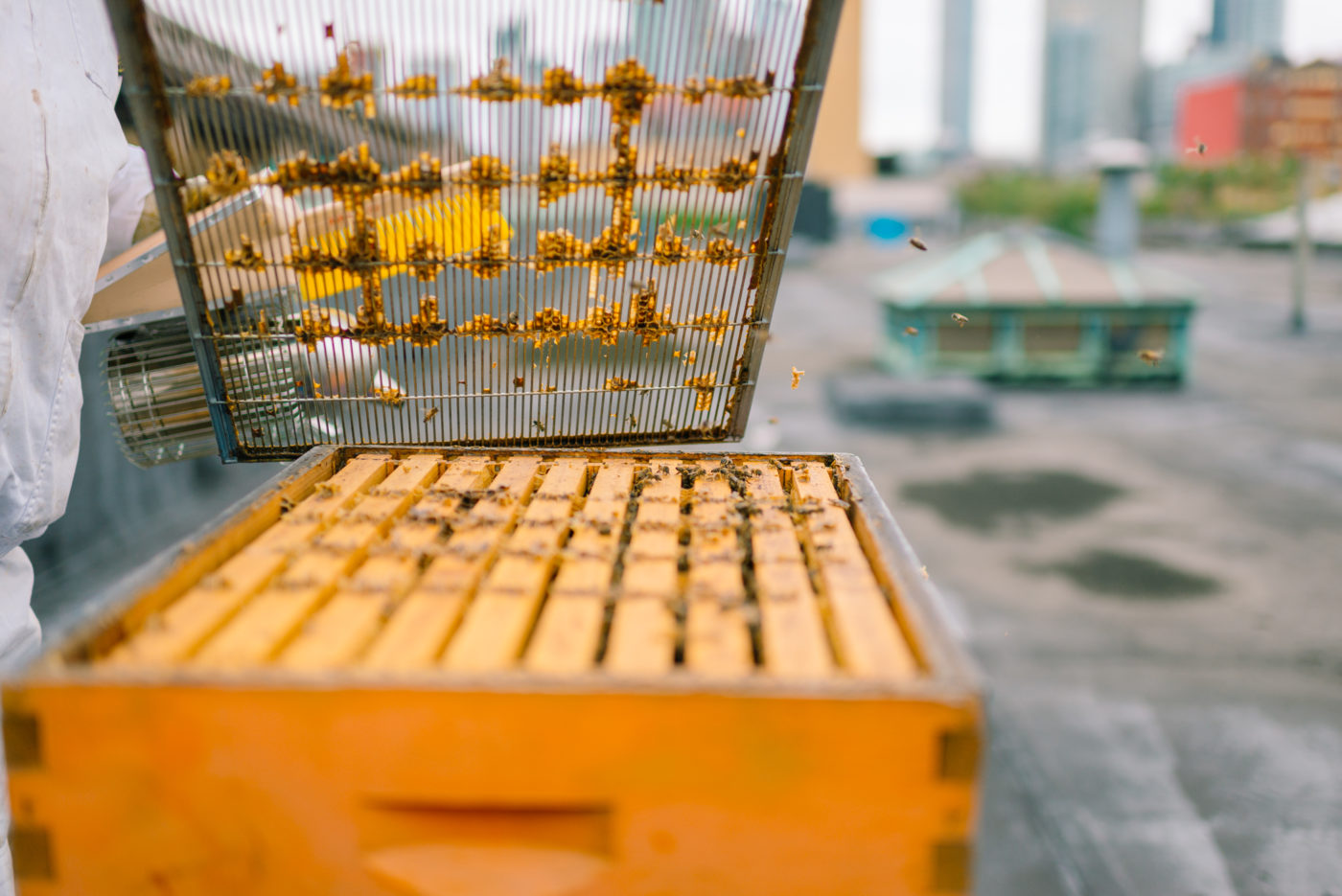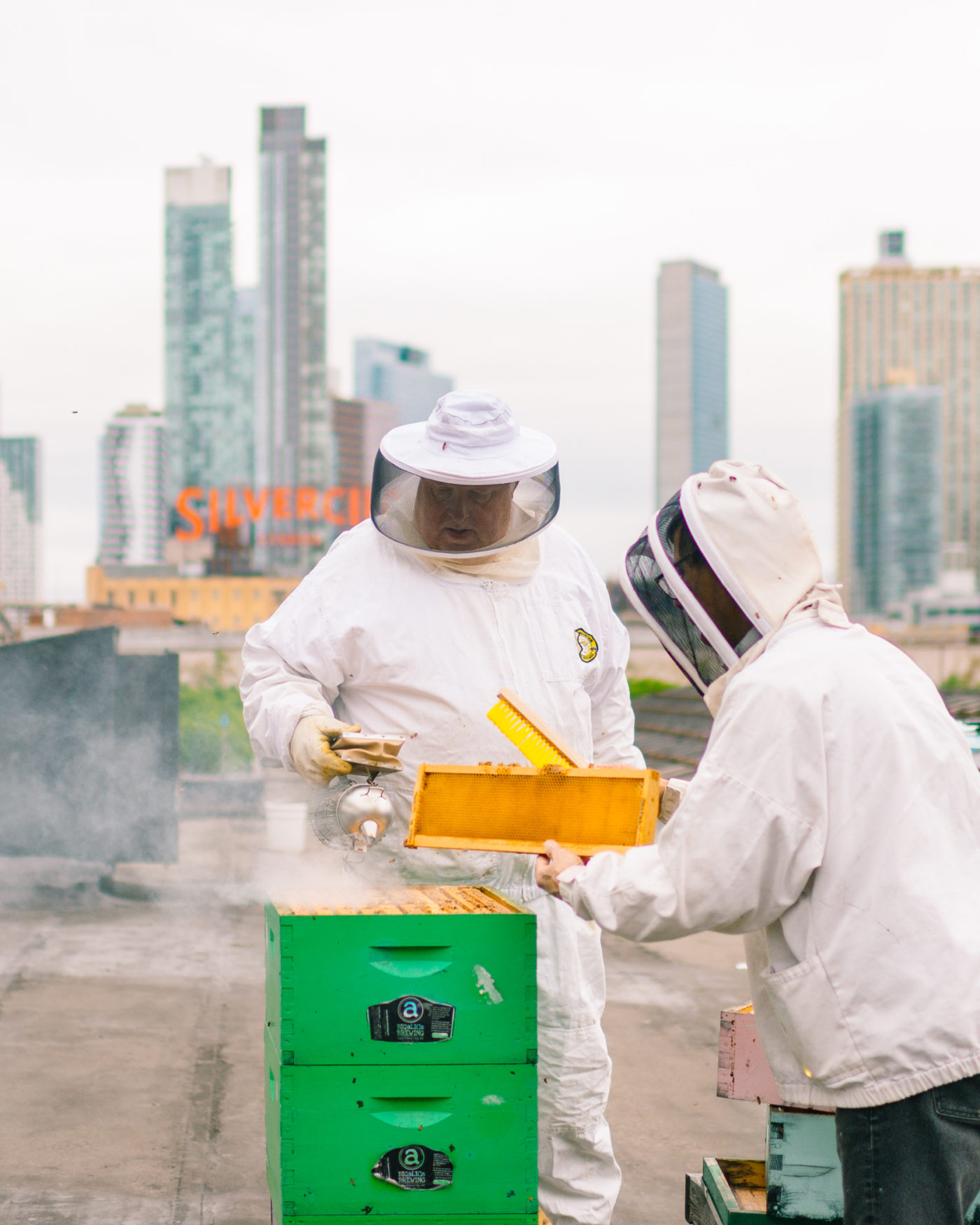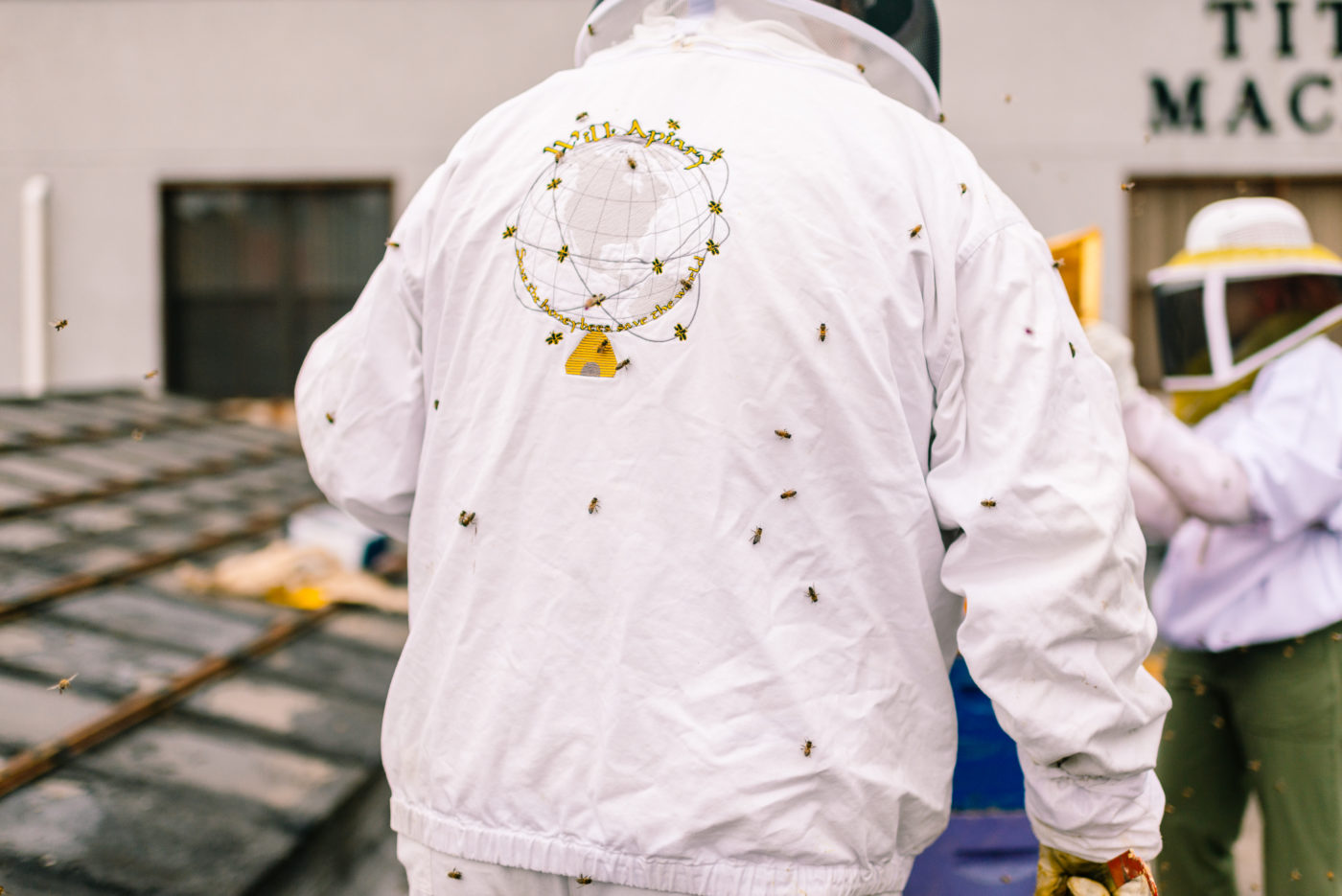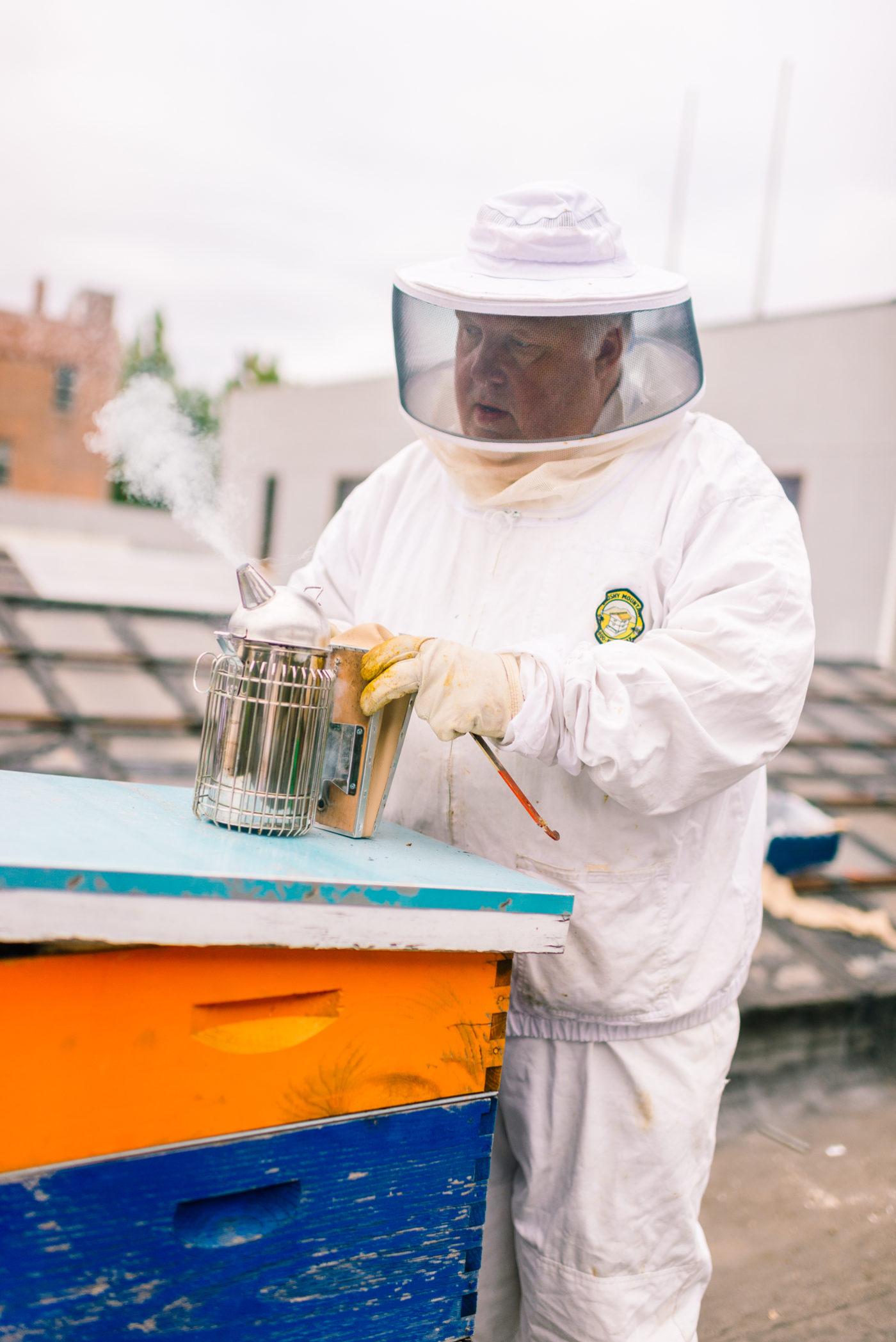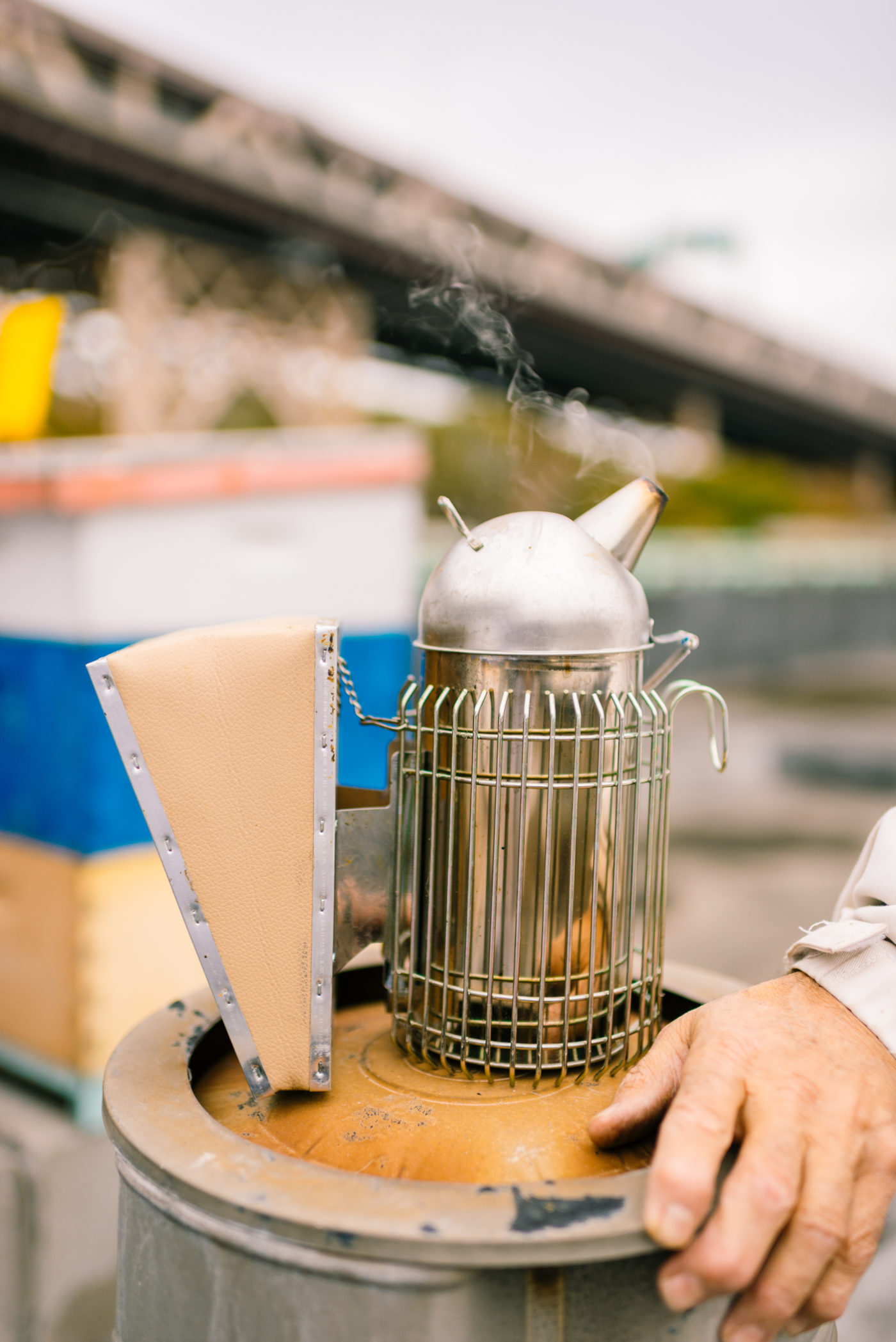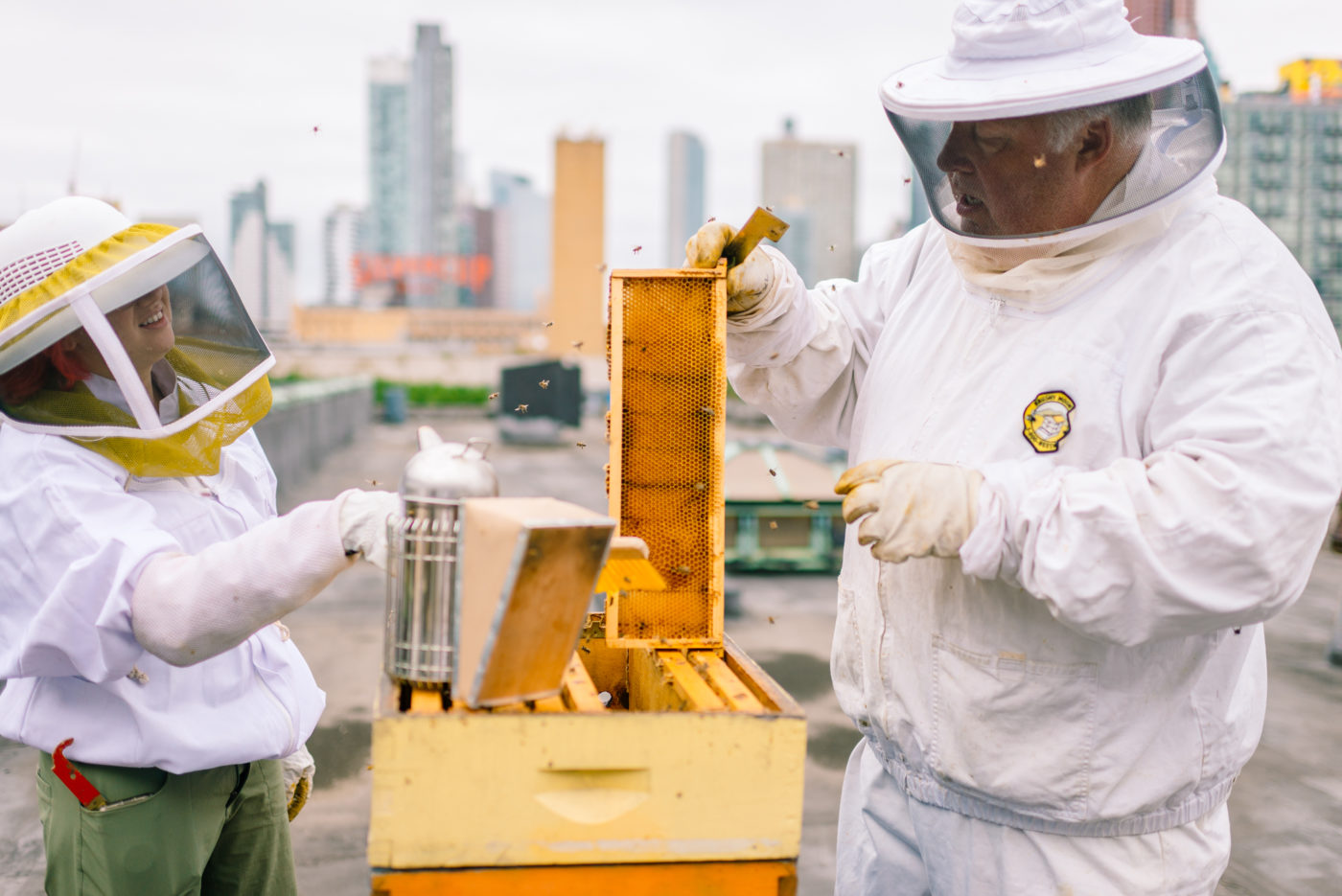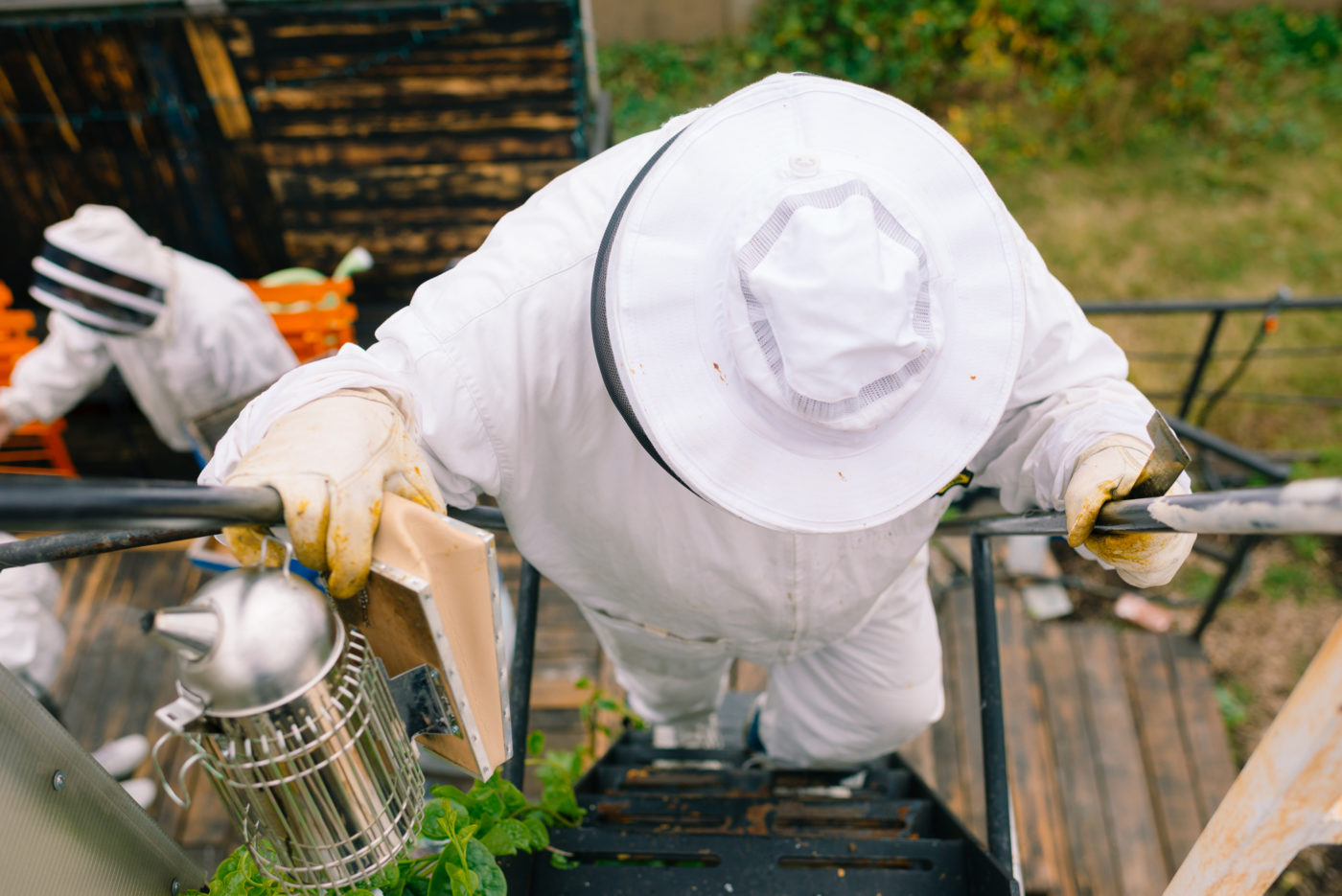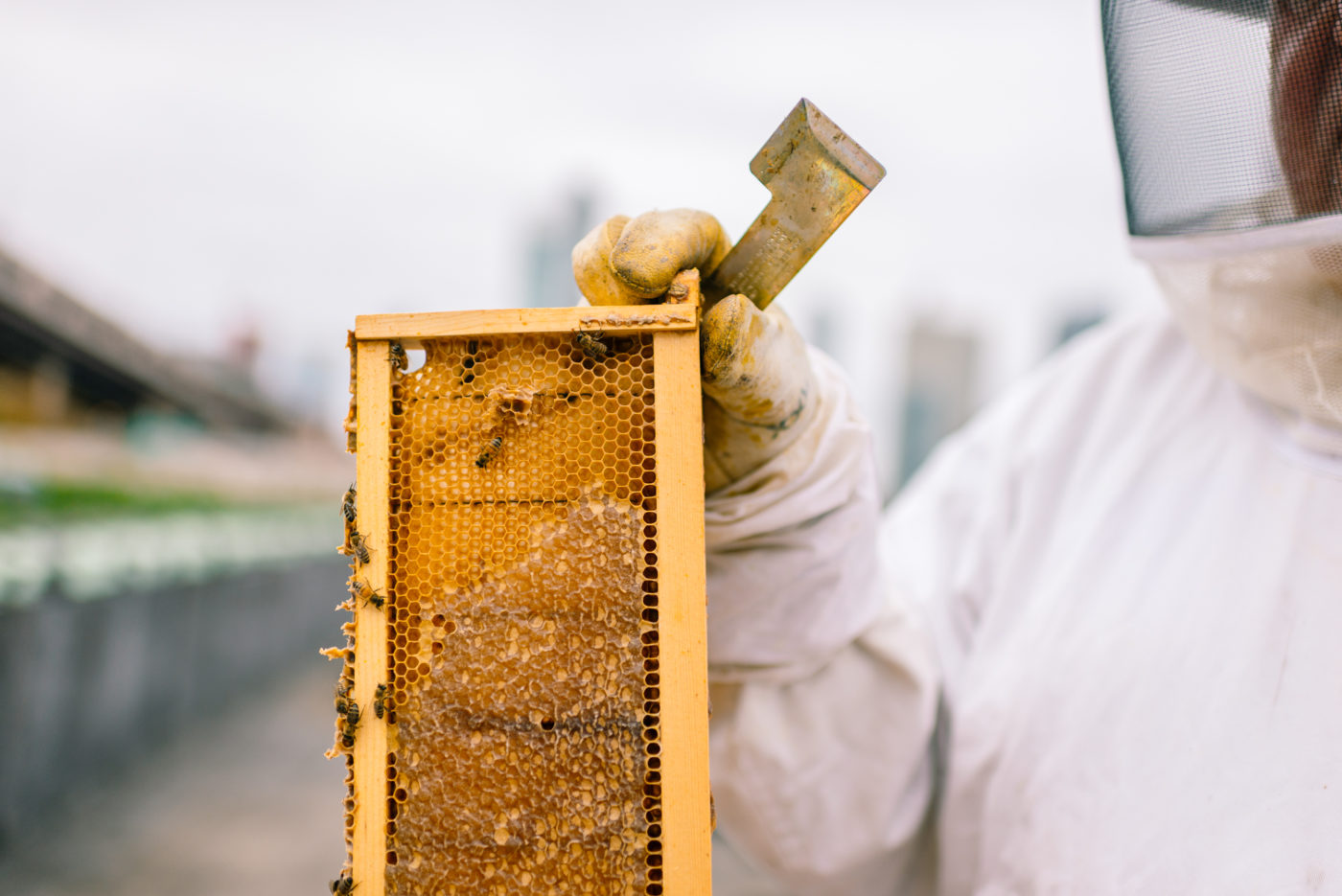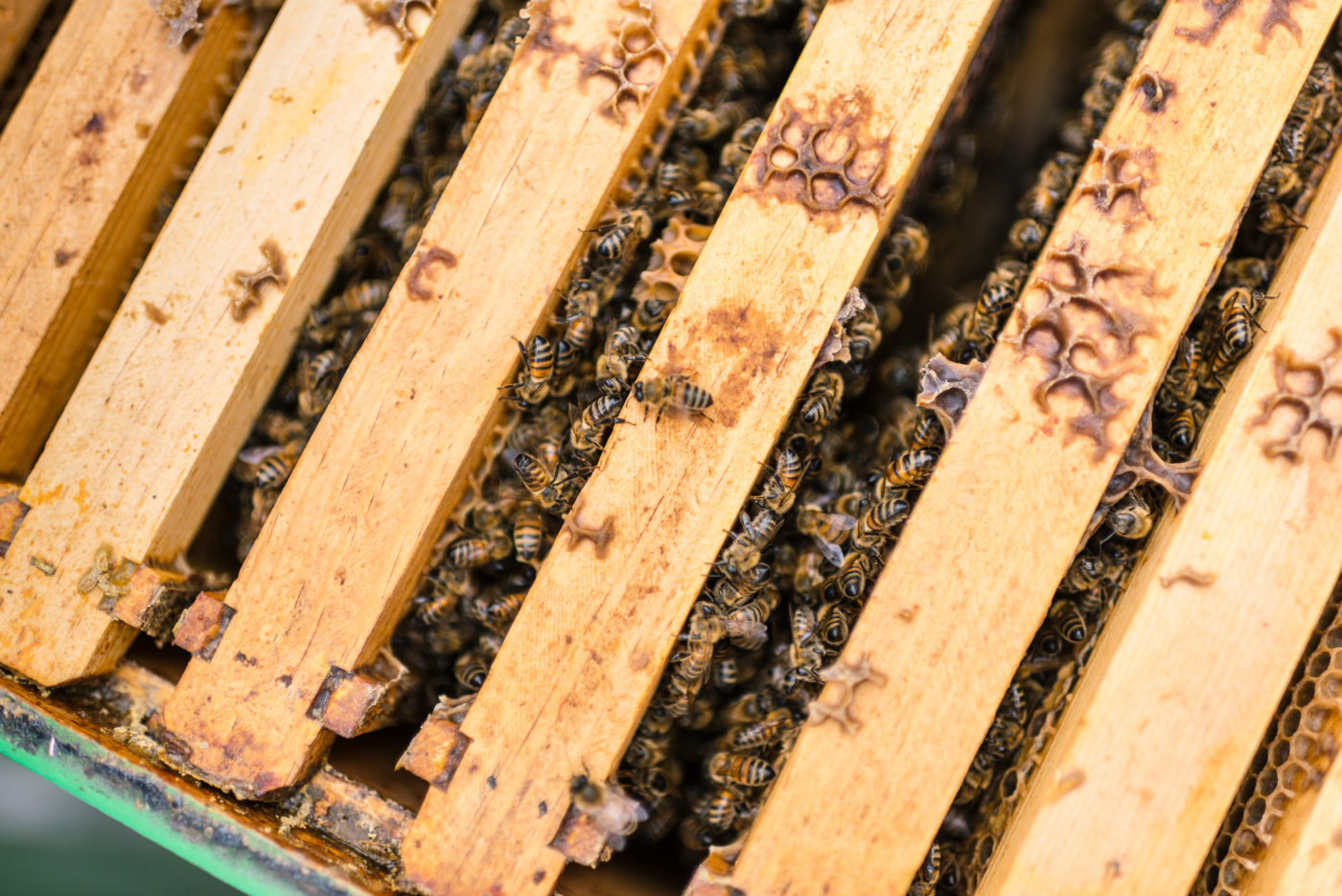Words by Angela Ignasky, photos by Jenny McCabe
While most of us are familiar with beekeeping, we wanted to know: what makes city beekeeping different? To show us the ropes, we reached out to NYC beekeeper Tom Wilk, who invited us to join him at one of his rooftop apiaries, where we interviewed him and photographed the experience.
Today’s about seeing who is alive and who is not.
Tom Wilk zips up the veil of his beekeeping suit as he marches up the stairs to a city rooftop in Queens, New York. It’s been weeks since he visited his city apiaries (in beekeeping culture, that’s a collection of honeybee hives), but as the seasons shift from summer to fall, it’s time to see if his bees have produced any final batches of honey. Wilk is unsure if there will be any honey at all – let alone living hives. He already anticipates one dead hive on this particular roof.
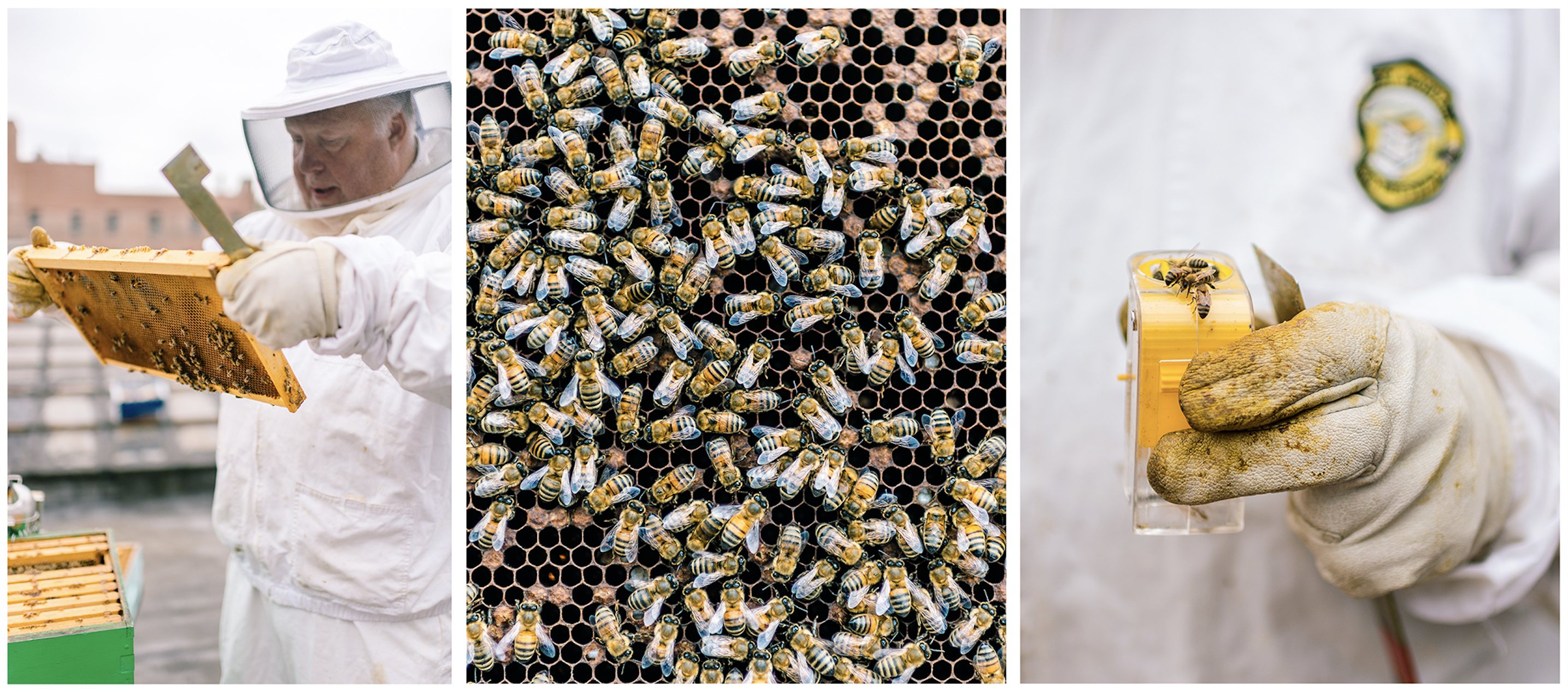
Wilk has been a city beekeeper for almost eight years now. Back in 2011, he was looking for an outlet from his high-pressure nine-to-five, and beekeeping unexpectedly found its way into his life during a visit to a Putnam County maple farm.
From there, Wilk enrolled a class with the NYC beekeeping association, found a few homes for his apiaries in Long Island City and Astoria, purchased his first colonies and began his side hustle. He remembers the beginning as scary but exciting. And now, it’s fun. He’s built up a small honey business and even has local New Yorkers asking him to keep bees on their property!
But what’s the benefit of having a city apiary? Beekeeping typically draws a country scene to mind, but cultivating a thriving hive is achievable in the middle of a bustling city, too – with a few key differences.
“In the city, you won’t get a lot of honey. But the advantage is you tend to have less pesticide exposure. Farmers tend to use a lot of herbicides, fungicides – these can be harmful to humans. Some of the pests in the country, you don’t get in a city harvest [like hive beetles]. Hives can be overrun by beetles in the country, but there is no place to breed for small hive beetles [in the city]. The larva pupates in soil and on rooftops there is no soil,” Wilk explains.
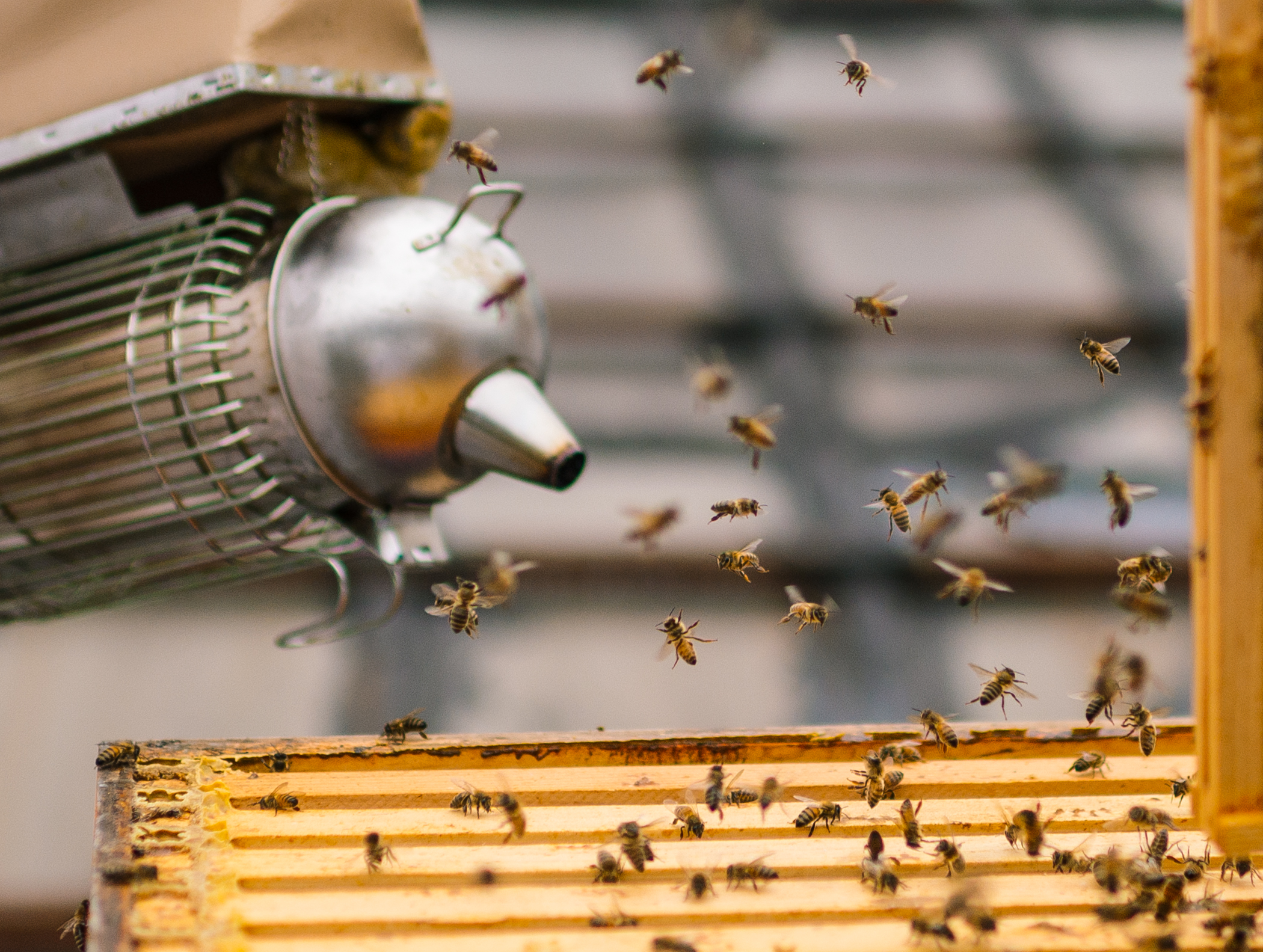
As Wilk enters the second rooftop of the day, it becomes apparent that another hive was lost; this time, to wax moths. Wax moths are destructive to hives and can easily destroy an entire hive if not caught in time. As Wilk lifts out each frame, moth larvae in thick, black dust are visibly thriving, rather than his honeybees. Wilk doesn’t seem bothered, knowing this is a risk that beekeeping takes.
“The rewarding part is going to start soon,” he says. In July 2019, Tom received Master Beekeeper certification from the Cornell Dyce Lab for Honeybee Studies. He also founded a new venture – The Queens Beekeepers Guild.
The Queens Beekeepers Guild is a non-profit 501(c)(3) organization – and from the name, you might dismiss it as just another beekeeping club. But, Wilk wants more for the guild. While beekeeping clubs are outlets for comradery and connection within the beekeeping community itself, The Queens Beekeepers Guild will open its arms to the New York Community at large.

The Guild’s mission is to be a resource for outreach and education, where anyone can learn about pollinators (think: honeybees, yellowjackets, wasps) and how to live in harmony with them. It will also host workshops for children and adults, teaching the importance of honeybees and how to help them survive. Wilk wants to spread awareness about the easy ways New Yorkers can have a positive impact on bees, through tasks as simple as planting more flowers.
Wilk also wants to get involved with local government and the highway department to increase the number of wildflowers on the sides of NYC freeways, which will ultimately help pollinators in the area.
As Wilk wraps up his check-in on the second roof, he mentions that if it were later in the afternoon, his assistant for the day, Shana, and fellow beekeeper Ralph, would go to a nearby brewery for a few drinks (he has honey partnerships with several local spots like Finback Brewery, Bridge & Tunnel Brewery or Big Alice Brewing, which has even sponsored a hive in the past).
Through his business, Wilk has created a network of friends, partners and community connections. It’s clear that urban beekeeping is so much more than a hobby for him – it’s an extended family.
